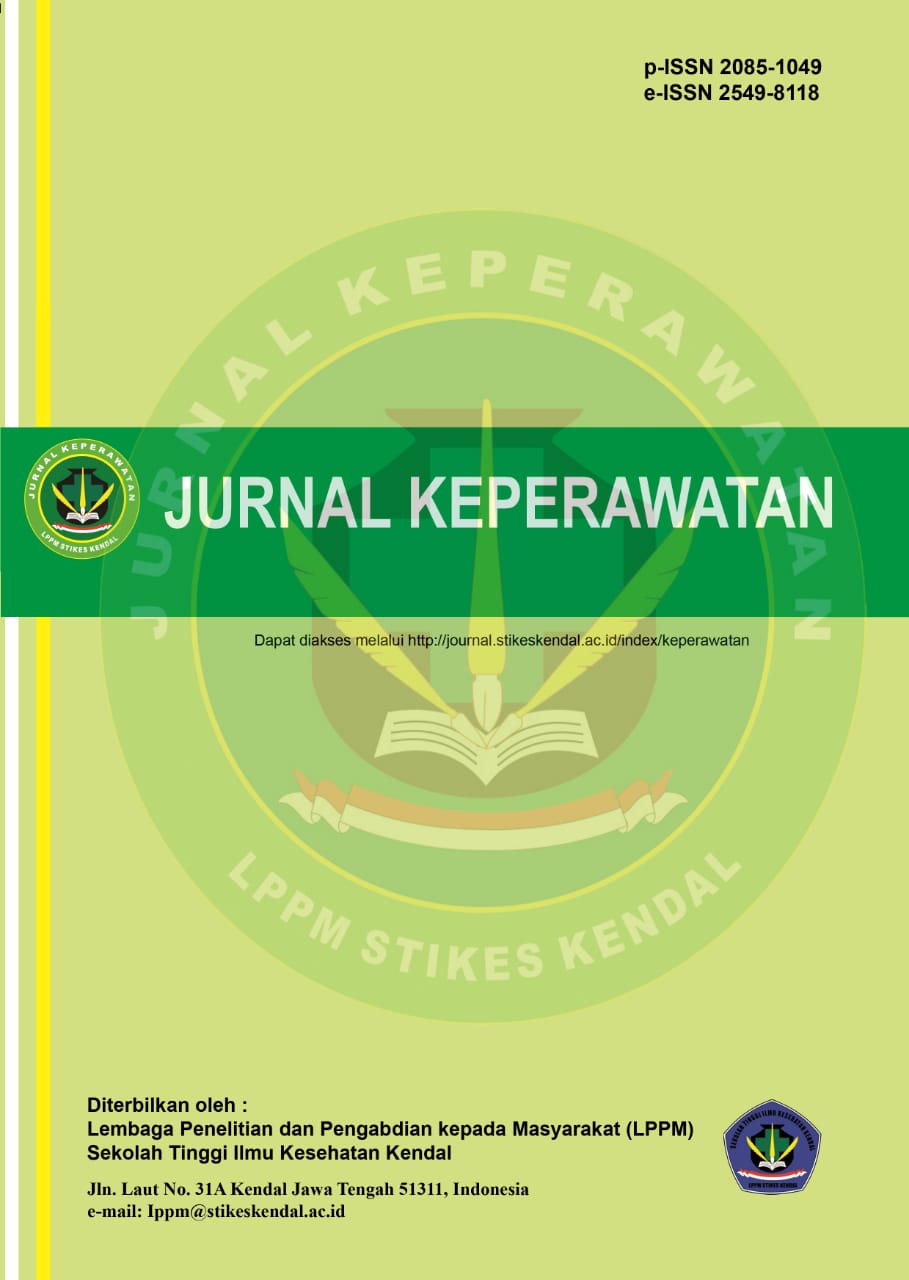Controlling Depression and Improving Self-Introspection Ability in Post Pandemi Covid-19 Disposal Victims Through Cognitive Thought Stopping Therapy in Agroindustrial Area
DOI:
https://doi.org/10.32583/keperawatan.v16i1.1527Keywords:
agronursing, cognitive thought stopping therapy (ctst), layoffs, self-introspectionAbstract
Employees mental unpreparedness due to termination of employment (PHK) causes depression and lack of self-control which has an impact on social relations problems for those concerned and their environment. Efforts are needed to overcome these problems through psychosocial therapy, including Cognitive Therapy and Thought Stopping Therapy or a synthesis of both to reduce depression and lack of self-introspection for layoff victims. This research aims to overcome depression problems and improve your capacity for mental self-control. This study has an experimental pre-post test design with a control group, the sampling technique is purposive. The sample size is 48 respondents were split into four groups. The duration of the study was 2 months, with the method of observing and giving therapy to layoff victims who had depression and lacked the capacity for introspect. Based on the Wilcoxon test, the results obtained were p = 0.003, Cognitive Therapy (CT) p = 0.003, Thought Stopping (TS) p = 0.002, the value was less than p 0.005 which means it was very significant because there were differences in the results in the treatment and control groups. Post-treatment Kruskal Wallis test on depression variable obtained p = 0.001. The Wilcoxon test on the variable Cognitive Thought Stopping Therapy (CTST) obtained a value of p = 0.002, Cognitive Therapy (CT) p = 0.003, Thought Stopping (TS) p = 0.002 meaning that there is a significant difference in value for each variable measured. The capacity for control negative ideas based on the Kruskal Wallis test p = 0.000. The results of the study explain that there is a significant effect of CTST on reducing the level of depression and increasing the ability of self-introspection in victims of layoffs after the Covid-19 pandemic in the agro-industry area.
References
Agustarika, B. (2009) Pengaruh Terapi Thought Stopping Terhadap Ansietas Klien dengan Gangguan Fisik di RSUD Kabupaten Sorong. Universitas Indonesia.
Aziz, M.R. and Noviekayati, I. (2016) Dukungan Sosial, Efikasi Diri dan Resiliensi Pada Karyawan yang Terkena Pemutusan Hubungan Kerja, Persona:Jurnal Psikologi Indonesia, 5(01). doi:10.30996/persona.v5i01.742.
Beck, A.T. (1985) Depression: Causes and Treatment. Philadelphia: University of Pennsylvania Press.
Beda, N.S. (2018) Pengaruh Cognitive Thought Stopping Therapy Terhadap Tingkat Depresi dan Kemampuan Mengontrol Pikiran Negatif Pada Klien Pascastroke Di RSUP DR. Wahidin Sudirohusodo Makassar. Universitas Airlangga.
Burns, D.D. (1980) Feeling Good: The New Mood Therapy. New York: New American Library.
Cahyono, B. D., Huda, N., & Aristawati, E. (2022). Efforts of Milkfish Pond Farmers in Managing Psychological Stress and Remaining Productive in The Time of the Covid-19 Pandemic. Nusantara Science and Technology Proceedings, 30–35.
Davidson., B. (1990) Terapi Kognitif Untuk Depresi dan Kecemasan Suatu Petunjuk bagi Praktisi. Semarang: IKIP Semarang.
Aristawati, E., Cahyono, B. D., & Huda, N. (2022). Strategi Penyintas Long Covid-19 dalam Mengatasi Kecemasan, Depresi dan PTSD. Jurnal Keperawatan, 14(4), 1139–1146.
Hofmann, SG., Asmundson GJ, B.A. (2011) The Science of Cognitive Therapy, Wiley-Blackwell [Preprint].
Irawan, H.D. and Rahmasari, D. (2021) Hopelessness Pada Korban PHK Pandemi COVID-19 Yang Memiliki Ide Bunuh Diri Herik Dwi Irawan, Jurnal Penelitian Psikologi, 8(8), pp. 1–11.
Kawilarang, G.W. and Kadiyono, A.L. (2021) Gambaran Resiliensi Karyawan Swasta yang Terkena PHK Akibat Pandemi COVID-19, Psikodimensia, 20(2), pp. 219–228.
Nevid, J. S., Rathus, S. A., & Greene, B. (2008) Abnormal Psychology in a Changing World. 7th edn. Upper Saddle River: Pearson: Prentice Hall.
O’Neill.M.L., Whittal, M.. (2002) Thought Stopping. 2nd edn. Boston: Academic Press.
Riyanty, I.N. and Nurendra, A.M. (2021) Mindfulness Dan Tawakal Untuk Mengurangi Depresi Akibat Pemutusan Hubungan Kerja Pada Karyawan Di Era Pandemi Covid-19, Cognicia, 9(1), pp. 40–44. doi:10.22219/cognicia.v9i1.15975.
Townsend, M.C. (2009) Psychiatric Mental Health Nursing. 6th edn. Philadelphia: F.A.Davis Company.
Downloads
Published
How to Cite
Issue
Section
License
Copyright (c) 2023 Jurnal Keperawatan

This work is licensed under a Creative Commons Attribution-NonCommercial-NoDerivatives 4.0 International License.




